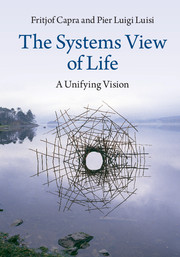Book contents
- Frontmatter
- Dedication
- Contents
- Preface
- Acknowledgments
- Introduction Paradigms in science and society
- I The mechanistic worldview
- II The rise of systems thinking
- III A new conception of life
- IV Sustaining the web of life
- 16 The ecological dimension of life
- 17 Connecting the dots
- 18 Systemic solutions
- Bibliography
- Index
17 - Connecting the dots
Systems thinking and the state of the world
from IV - Sustaining the web of life
Published online by Cambridge University Press: 05 April 2014
- Frontmatter
- Dedication
- Contents
- Preface
- Acknowledgments
- Introduction Paradigms in science and society
- I The mechanistic worldview
- II The rise of systems thinking
- III A new conception of life
- IV Sustaining the web of life
- 16 The ecological dimension of life
- 17 Connecting the dots
- 18 Systemic solutions
- Bibliography
- Index
Summary
The great challenge of our time, as we mentioned in our previous chapter, is to build and nurture sustainable communities and societies, designed in such a way that our activities do not interfere with nature's inherent ability to sustain life. The first step in this endeavor is to understand the principles of organization that nature's ecosystems have evolved to sustain the web of life; we need to become, as it were, ecologically literate.
We also emphasized in the previous chapter that the basic principles of ecology – interdependence, the cyclical nature of ecological processes, flexibility, diversity, etc. – are basic systemic properties of all living systems. This is why the systemic understanding of life not only holds great intellectual fascination but is also tremendously important from a practical point of view. It is the cognitive foundation of our endeavor to move toward a sustainable future.
Interconnectedness of world problems
Once we become ecologically literate, once we understand the processes and patterns of relationships that enable ecosystems to sustain life, we will also understand the many ways in which our human civilization, especially since the Industrial Revolution, has ignored these ecological patterns and processes and has interfered with them. And we will realize that these interferences are the fundamental causes of many of our current world problems.
Information
- Type
- Chapter
- Information
- The Systems View of LifeA Unifying Vision, pp. 362 - 393Publisher: Cambridge University PressPrint publication year: 2014
